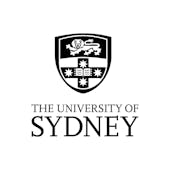In order to adapt to its environment, an animal must be sensitive to the consequences of its actions and be able to modify its behaviour in order to gain access to desired commodities while avoiding events that are harmful or aversive. It is the flexibility of the instrumental or goal-directed components of human behaviour that allows us to develop new behavioural strategies to control events in our environment and satisfy our needs. The adaptive quality of this flexibility becomes most clear when these processes break down as they do in a number of psychiatric disorders including addiction. The goal of my research is to provide fundamental information about the behavioural and neural determinants of goal-directed action and the transition to automatic/habitual performance. This work will also provide considerable insight into the development and maintenance of addictive behaviours and may aid the development of treatment strategies to reverse such behaviours.
Experience
-
–presentLecturer, School of Psychology, University of Sydney
Education
-
University of California, Los Angeles, PhD/Psychology
Research Areas
- Biological Psychology (Neuropsychology, Psychopharmacology, Physiological Psychology) (170101)
- Article Feed
- Joined


